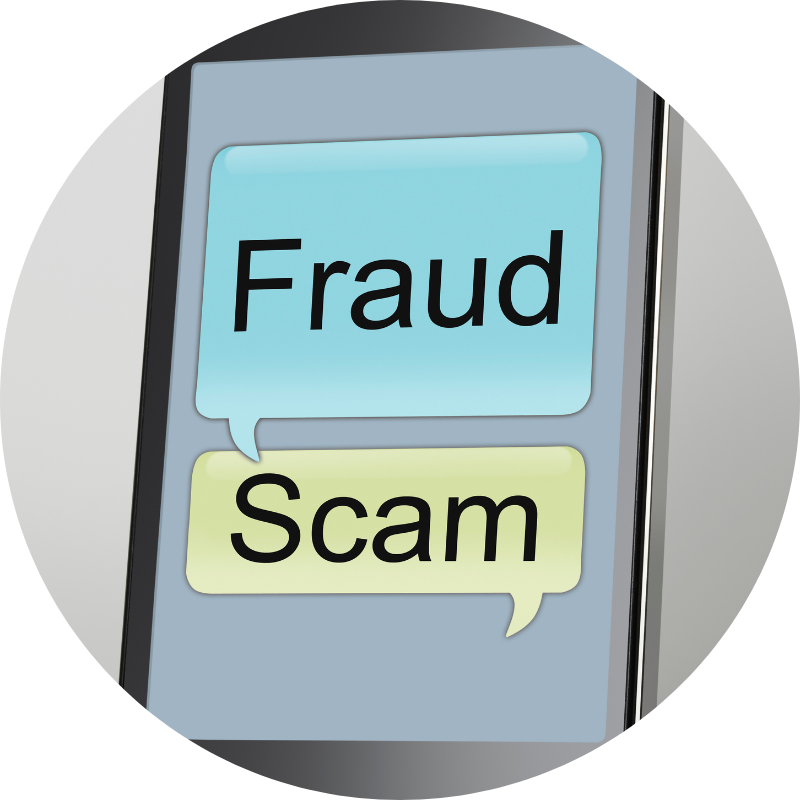
Smishing: Safeguarding Against Text Messaging Scams
Smishing, a combination of “SMS” (Short Message Service) and “Phishing,” is a type of cyber attack where scammers send fraudulent text messages to trick individuals into revealing personal information, such as passwords, credit card numbers, or other sensitive data. These messages often appear to come from legitimate sources, such as banks, government agencies, or well-known companies, and may include links to fake websites or prompt recipients to call a fraudulent phone number. The goal of smishing is to exploit the trust and urgency typically associated with text messages to deceive victims into providing confidential information or downloading malicious software.
To help safeguard against smishing, follow these best practices:
Be Skeptical of Unsolicited Messages – Be cautious of unexpected text messages, especially those that ask for personal information or prompt you to take immediate action.
Verify the Source – If you receive a message from a company or organization, verify its authenticity by contacting them directly using official contact information. Do not use the contact information details provided in the suspicious message.
Don’t Click the Links or Download Attachments – Avoid clicking on links or downloading attachments from unknown or unexpected text messages.
Never Share Personal Information – Do not share personal information such as passwords, Social Security numbers, or credit card details in response to a text message.
Use Security Software – Install and maintain reputable security software on your mobile device to help detect and block malicious messages and apps.
Enable Spam Filters – Use spam filtering features provided by your mobile carriers or messaging app to reduce the number of potential smishing messages.
Keep Your Phone Updated – Regularly update your phone’s operating system and apps to protect against security vulnerabilities.
Report Smishing Attempts – Report suspicious messages to your mobile carrier and the relevant authorities, such as the Federal Trade Commission (FTC) in the United States.
Educate Yourself and Others – Stay informed about the latest smishing tactics and educate friends and family on how to recognize and avoid these scams.
Use Multi-Factor Authentication (MFA) – Enable MFA for your online accounts to add an extra layer of security, making it harder for scammers to gain access even if they obtain some of your information.
Staying vigilant and informed is crucial in the fight against smishing. As cybercriminals continually evolve their tactics, it’s essential to adopt proactive measures to safeguard your personal information. By being skeptical of unsolicited messages, verifying sources, avoiding suspicious links, and utilizing security tools, you can significantly reduce your risk of falling victim to these scams. Remember, your best defense is awareness and caution. Stay safe. Stay alert. And keep your information secure.
For more information about our services, please contact us at 888.632.2940.
*Payentry, an MPAY Company (Company), is not a law firm. This article is intended for informational purposes only and should not be relied upon in reaching a conclusion in a particular area of law. Applicability of the legal principles discussed may differ substantially in individual situations. Receipt of this or any other Company materials does not create an attorney-client relationship. The Company is not responsible for any inadvertent errors that may occur in the publishing process.

